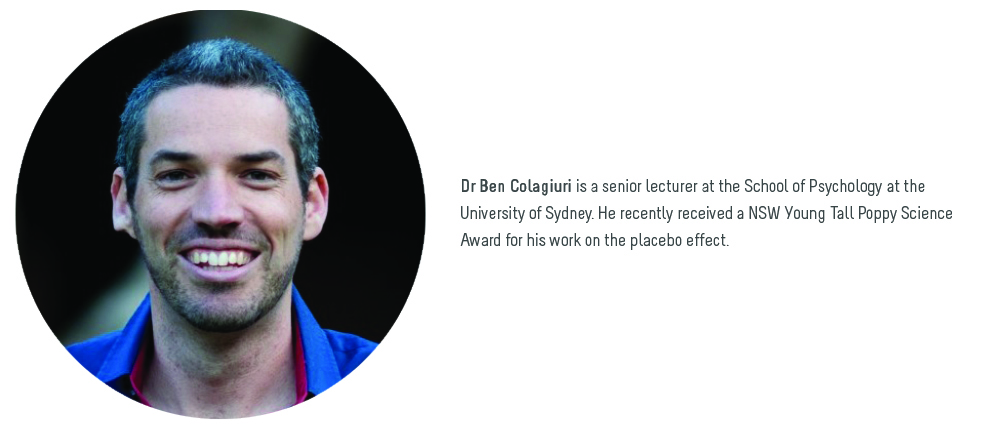
The placebo effect is a fascinating phenomenon, with important implications for medical treatment and clinical trials, says Dr Ben Colagiuri a lecturer and the University of Sydney and recent recipient of the prestigious NSW Young Tall Poppy Science Award. We catch up with him about what he has discovered so far, and what his holy grail moment would be.
What’s the issue your research is trying to solve?
My research explores the placebo effect, which occurs when patients’ beliefs about their treatment influence their outcomes.
What have you discovered so far?
My students and I have found that placebo treatment can provide relief from pain and nausea and improve sleep quality and cognitive function. However, we have also shown that placebo treatment can lead to negative outcomes. For example, we found that warning patients about side effects can increase actual side effect occurrence.
What’s been your biggest hurdle?
Thankfully, most of my research has run fairly smoothly to date. Probably the biggest challenge is accessing clinical populations, which is where some of the most interesting and relevant placebo effect findings occur.
If you could discover one thing in your research, what would it be? (e.g. what’s your holy grail?)